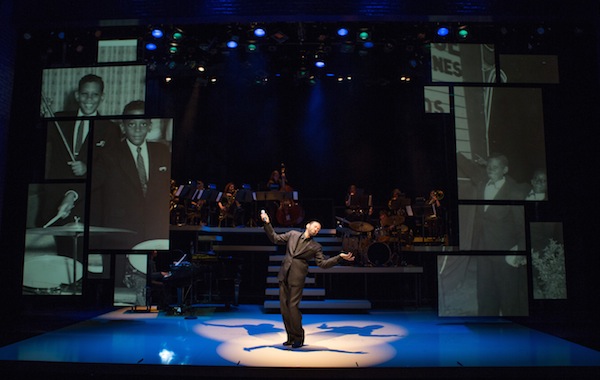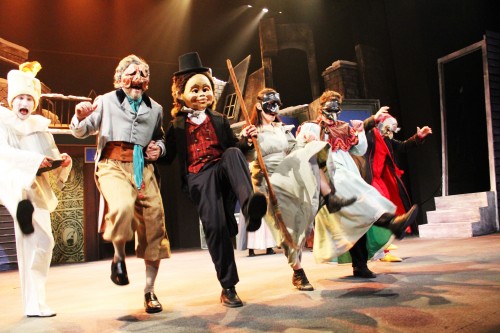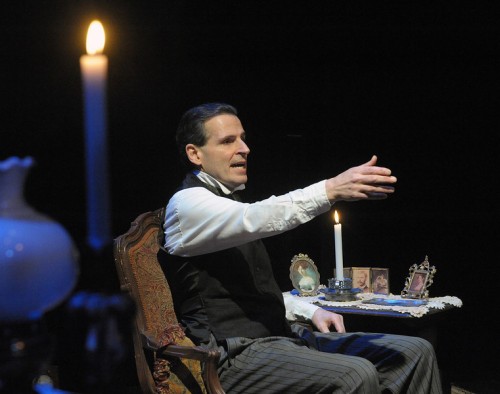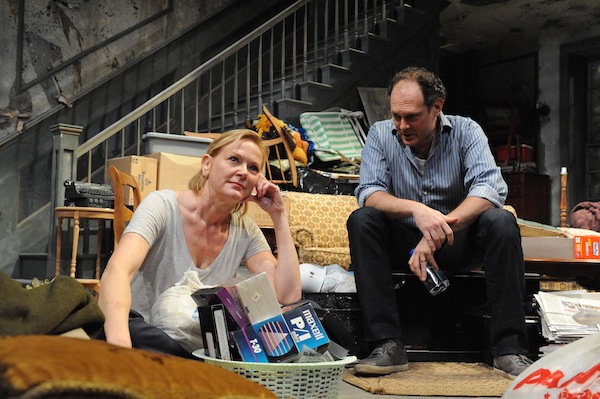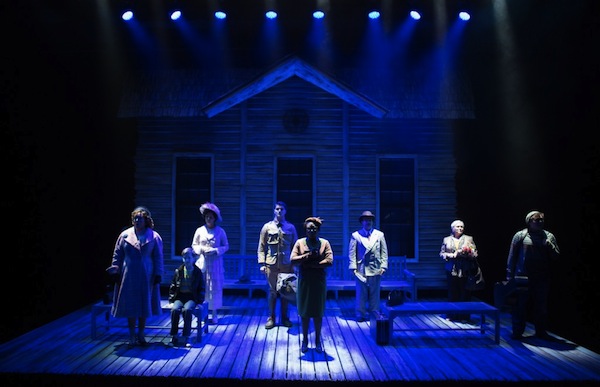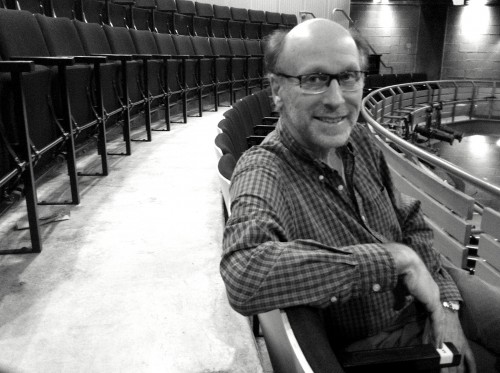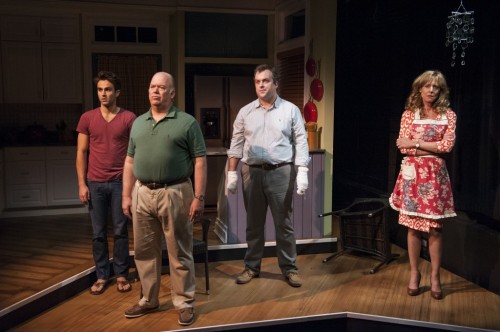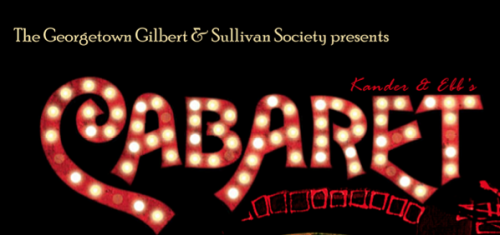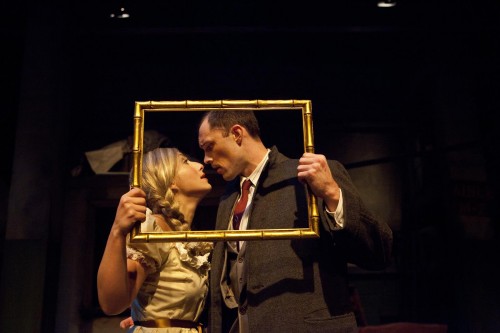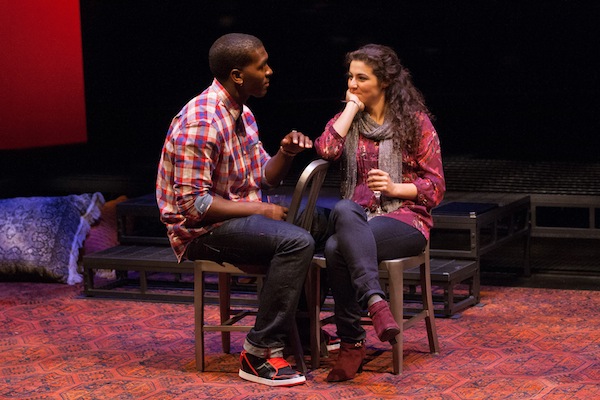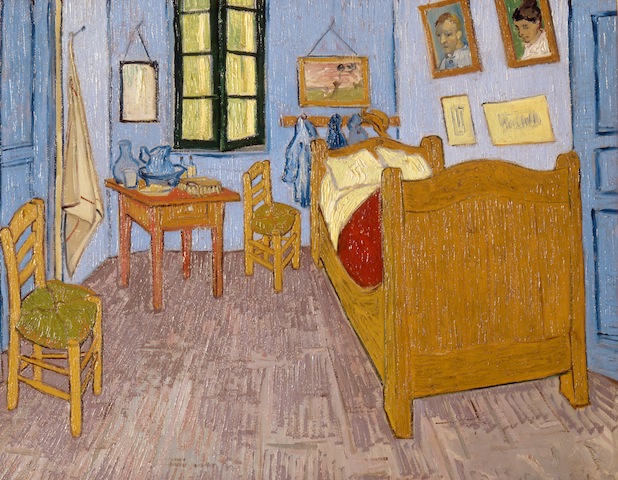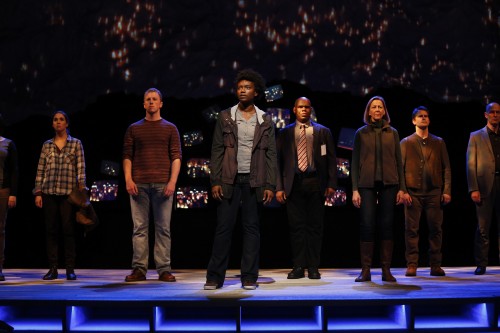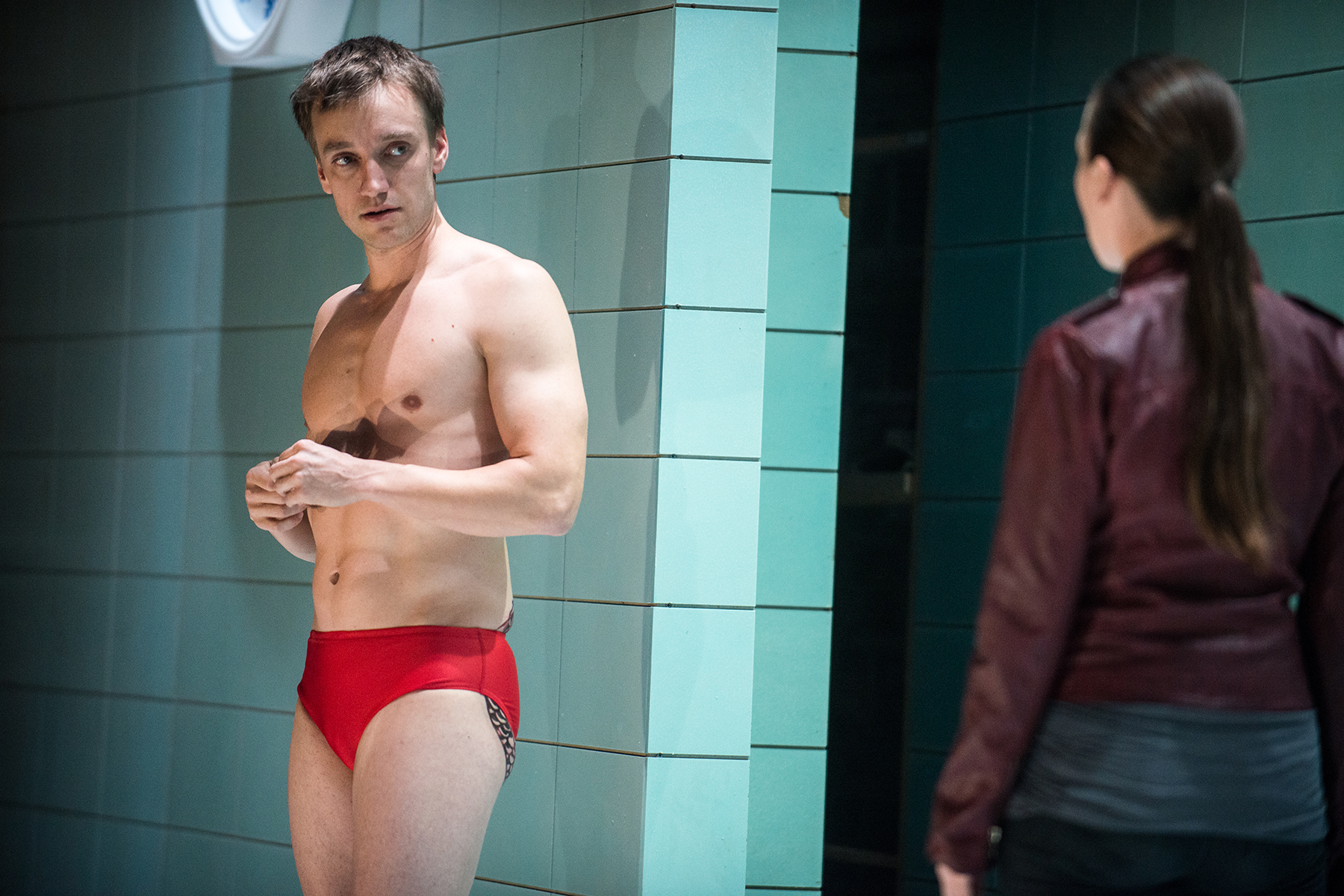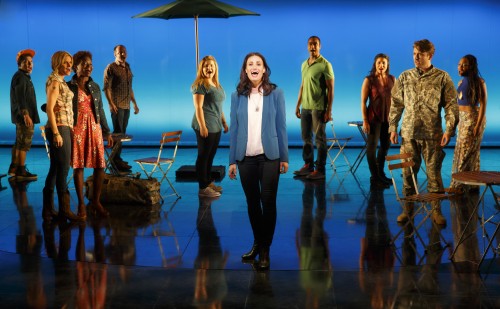
Idina Menzel and company in If/Then at the National Theatre. Photo by Joan Marcus.
IF seeing a world-premiere musical before it went to Broadway weren’t exciting enough, THEN learning that Tony-award winners Idina Menzel and LaChanze were in it, along with Anthony Rapp and James Snyder, I was elated beyond comprehension. IF the writer/composer team of Tom Kitt and Brian Yorkey could write a great musical, like Next To Normal, THEN their new show was probably going to be awesome. IF, after seeing it, I told you it was perfect, THEN I’d be lying. But IF I told you that If/Then at the National Theatre has something compelling to it, THEN that would be the absolute truth.
Set around the premise that one tiny, seemingly insignificant decision can alter the course of one’s life, If/Then addresses the ultimate existential question. What if…? In this case, Elizabeth (Menzel) simultaneously experiences dueling, but separate, existences based on the events that follow when she is faced with choosing whether to get coffee with a neighbor or attend a protest rally with a friend. In one scenario, she joins her neighbor Kate (LaChanze) for coffee, and in the process meets her future husband, becomes an adjunct professor, has a family, and is eventually faced with terrible tragedy that forces her to question whether she made the right choice that day she went out for coffee. In the other scenario, she joins her friend Lucas (Rapp) at a protest rally where she runs into an old colleague who offers her a corporate job as a New York city planner, becomes a successful professional, choosing a career over marriage and falling into a series of unsuccessful romantic relationships, eventually facing a terrible tragedy that forces her to question whether she made the right choice that day she followed Lucas to the rally.
While this was an interesting concept, I found that I didn’t fully understand exactly what was happening, or who was who in which scenario, until about 30 minutes into the show. Once I figured out that a red background was referring to the events of the coffee scenario, a blue background meant the rally scenario, that Elizabeth was Liz in one scenario and Beth in another, that her friends remained constant in both, but her careers and personal relationships didn’t cross over into both worlds, it made more sense. Both lives that Elizabeth leads are fun to see juxtaposed side by side and director Michael Greif has seamlessly woven them together. Events in each of the separate scenarios show the audience how, together, Elizabeth is a whole person, but separately, she’s incomplete, longing for something more. Because both lives find her wanting, it’s difficult to know which scenario you hope is the ‘true’ one, and about halfway through Act II, I realized that somehow the two would have to converge in order to have a satisfactory ending.
However, that ending, while it found a way to tie the two worlds together into a fairly complete conclusion, also negated the whole point of the show in doing so. This entire premise, based on the fact that destiny is created by the individual choices humans make, is erased by the realization that regardless of which simple choice Elizabeth made five years prior, it really didn’t matter because, in the end, fate was going to step in and make the choice for her. And, if fate is going to decide the course of human life, why bother considering whether you made the right choice if there is, ultimately, no actual choice? Continue reading →
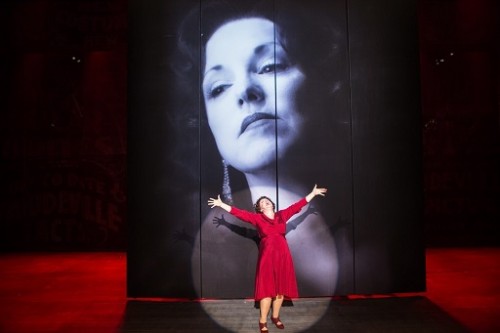
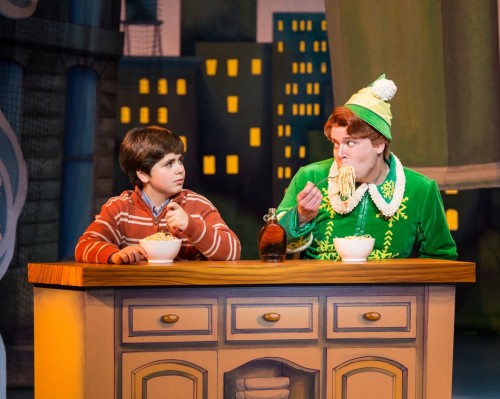
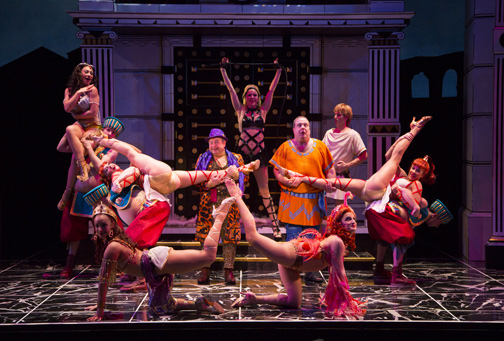
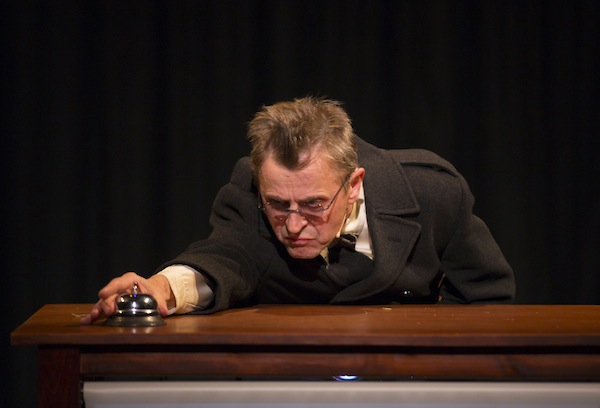
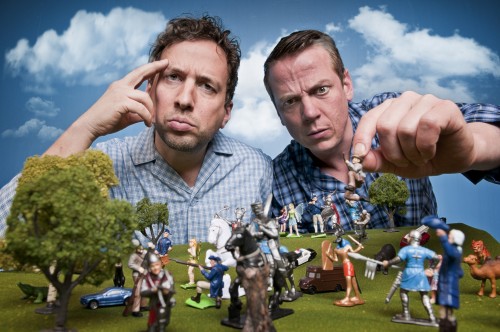
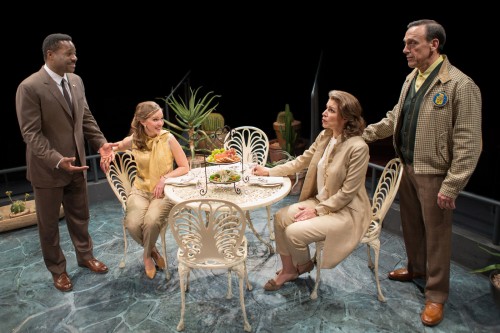 (L to R) Malcolm-Jamal Warner, Bethany Anne Lind, Tess Malis Kincaid and Tom Key in Guess Who’s Coming to Dinner at Arena Stage at the Mead Center for American Theater. Photo by Teresa Wood.
(L to R) Malcolm-Jamal Warner, Bethany Anne Lind, Tess Malis Kincaid and Tom Key in Guess Who’s Coming to Dinner at Arena Stage at the Mead Center for American Theater. Photo by Teresa Wood.
